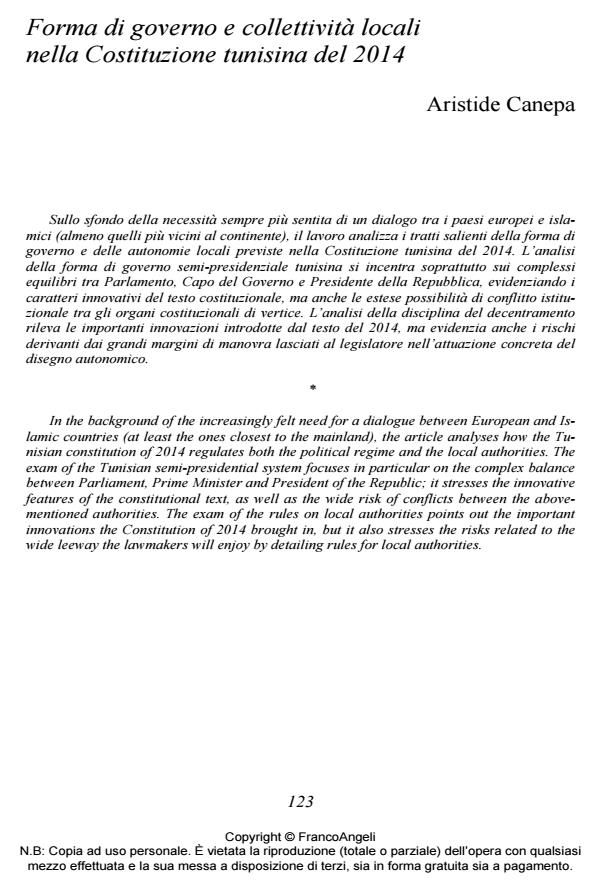Forma di governo e collettività locali nella Costituzione tunisina del 2014
Journal title CITTADINANZA EUROPEA (LA)
Author/s Aristide Canepa
Publishing Year 2015 Issue 2015/1
Language Italian Pages 17 P. 123-139 File size 63 KB
DOI 10.3280/CEU2015-001005
DOI is like a bar code for intellectual property: to have more infomation
click here
Below, you can see the article first page
If you want to buy this article in PDF format, you can do it, following the instructions to buy download credits

FrancoAngeli is member of Publishers International Linking Association, Inc (PILA), a not-for-profit association which run the CrossRef service enabling links to and from online scholarly content.
In the background of the increasingly felt need for a dialogue between European and Islamic countries (at least the ones closest to the mainland), the article analyses how the Tunisian constitution of 2014 regulates both the political regime and the local authorities. The exam of the Tunisian semi-presidential system focuses in particular on the complex balance between Parliament, Prime Minister and President of the Republic; it stresses the innovative features of the constitutional text, as well as the wide risk of conflicts between the abovementioned authorities. The exam of the rules on local authorities points out the important innovations the Constitution of 2014 brought in, but it also stresses the risks related to the wide leeway the lawmakers will enjoy by detailing rules for local authorities.
Aristide Canepa, Forma di governo e collettività locali nella Costituzione tunisina del 2014 in "CITTADINANZA EUROPEA (LA)" 1/2015, pp 123-139, DOI: 10.3280/CEU2015-001005